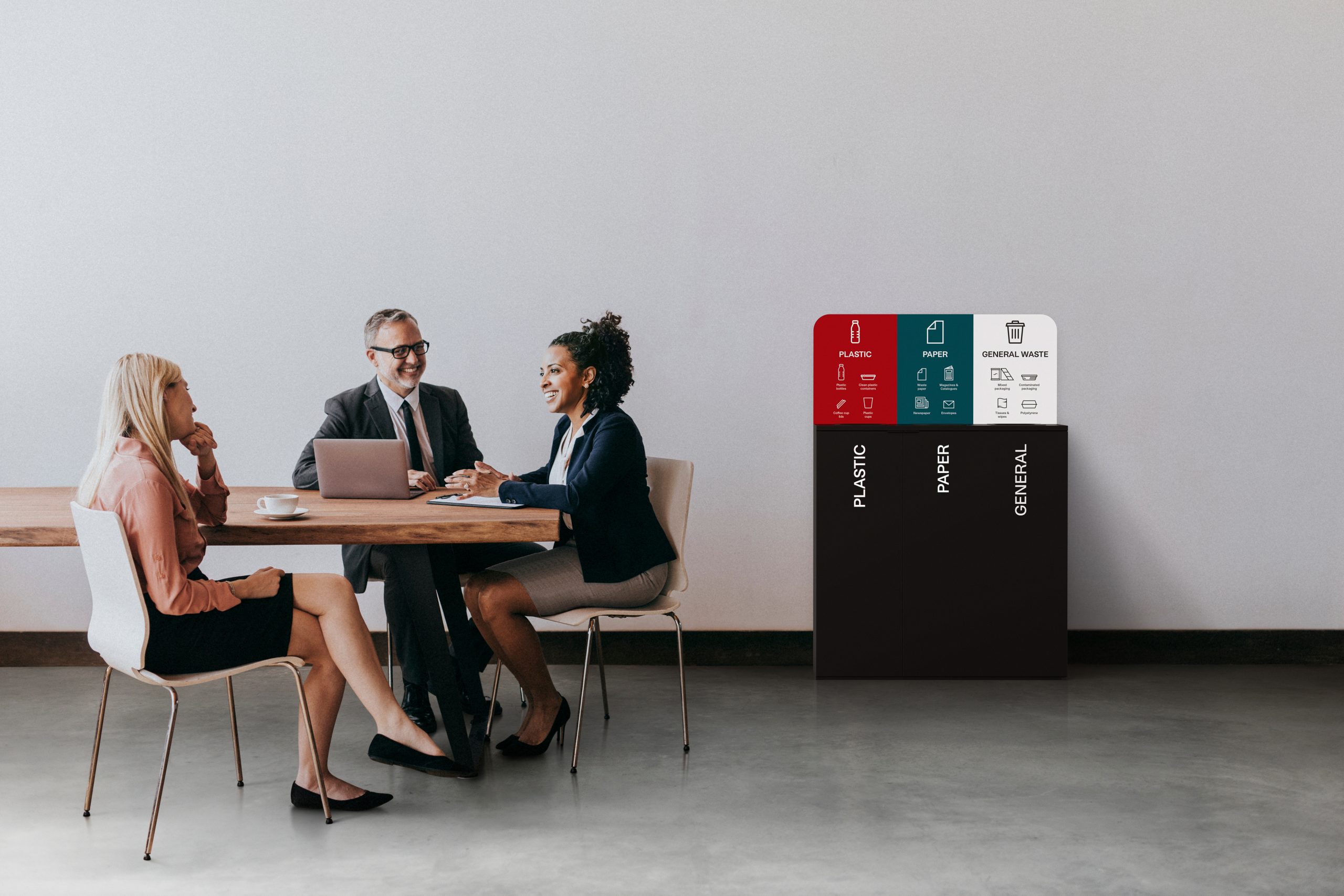Let’s start by looking at the problem with not recycling…
The average person in the UK throws away around 400kg of waste each year.
The UK as a whole produces around 26 million tonnes of waste a year. To give you some perspective, that’s the weight of around 260 large cruise ships.
Of these 26 million tonnes, 14 million tonnes are sent to landfill sites.
As a result, plastic waste is killing our wildlife and environment, we’re contributing to toxic waste gases that are damaging our health, we’re living under a cloud of pollution and we’re in a state of climate emergency.
Got your attention?
Why is recycling important?
Humans generate too much waste. It’s that simple. We’re not disposing of our rubbish in a sustainable enough manner, therefore, contributing to the rapid decline in environmental damage.
Recycling converts the things we buy and use into new items. This prevents the excessive energy and raw materials such as water, wood and minerals used to make these items from going to waste.
You may be familiar with the argument that the recycling of metal uses more energy than the extraction of the raw material itself.
It’s a myth!
The mining and processing of metal uses immense amounts of resources and energy, yet recycling cans saves up to 95% of the energy needed to make new cans from raw material.
The problem we ultimately face is that as populations grow and consumerism rises, our natural resources are diminishing at an alarming rate. Recycling can be a significant part of the solution!
Recycling items rather than using raw materials to make new items helps preserve the earths precious natural resources, saves energy, and reduces harm to wildlife caused by the extraction of raw materials.
Most importantly, recycling reduces the amount of waste sent to landfill. When rotting waste is left sitting on top of landfill, toxins are leached into the ground and soil which gives off a methane-like gas. Once the gas hits the environment, we have ourselves a global warming issue.
Sometimes, the harsh facts speak for themselves!
Recycle! Recycle! Recycle!
You’re probably thinking, will that one plastic bottle that I threw in the waste make that much difference? Or that one empty can?
The answer is, yes! An astounding difference!
With a population of approximately 67 million in the UK, imagine if everyone just discarded of one bottle, or one can! At this scale, small actions can have a massive effect.
That said, it is not all bad news with our current actions. The recycling that we’re currently doing is saving around 10-15 million tonnes of carbon emissions a year, according to Recycle Now. That’s the equivalent of taking 3.5 million cars off the road!
This contribution is reducing the need to grow, harvest or extract new materials from the earth which ultimately lessens the harmful disruption and damage to our environment. It’s also taking us a step closer to government recycling targets!
Where does recycling go?
You’ve carefully separated your waste in your office recycling bin or station, so what happens next?
After collection, your recycled waste is taken to a Materials Recovery Facility (MRF) for processing. Here, non-recyclable materials and steel cans are removed, and paper and card are separated. Different types of plastics are then identified and separated, aluminium cans are removed and finally, glass is sent into a large container.
Once items are separated, they can then be taken to specialist factories for reprocessing.
Understanding the recycling process highlights the importance of waste segregation and the problems associated with contamination. Incorrect items have to be removed by hand, but if any pass by undetected, they can clog machinery and other recycling equipment. More importantly, if too many of the wrong things are present, the whole waste load can end up at landfill.
Now think back to that one bottle…
How you can contribute
Implementing a workplace recycling scheme not only has a huge impact on the environment, but it also provides a heightened sense of wellbeing to those that feel they’re doing something positive.
Businesses that recycle build stronger teams and increase productivity by working collectively towards an important goal.
If you’d like to know more about how you can get started on a recycling scheme, please reach out to Unisan.
Who are Unisan?
Unisan’s key mission is to empower and support workspace recycling, in any environment. We are continually assisting organisations in achieving their sustainability goals and helping businesses demonstrate their commitment to both the environment and their workforce.
Have we convinced you to introduce recycling solutions to increase recycling rates, engage staff and meet the sustainability goals of your business in your workspace? Hope so! Please reach out to a member of the Unisan team to learn more and we’ll be happy to help.
"*" indicates required fields

